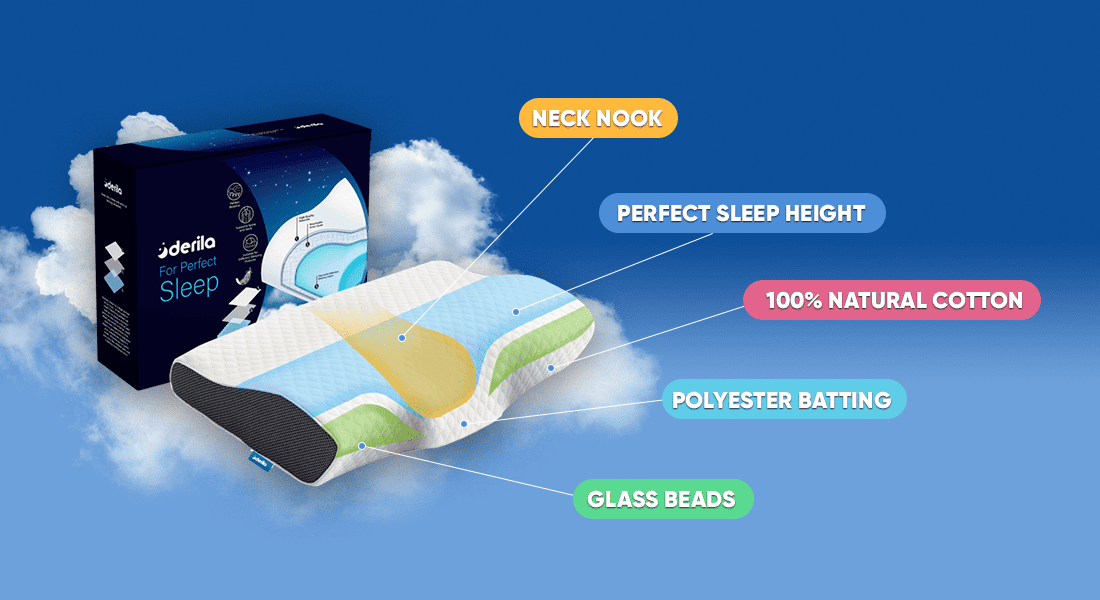While you sleep, it’s the best time for your hair to nourish. During sleep, the body goes into repair mode, making it an ideal period for your hair to absorb essential nutrients and moisture. Taking advantage of this fact, you can follow some actionable tips before sleeping to ensure your locks get the ultimate rejuvenation.
This article will guide you through various protective measures, including the use of specialized gear, recommended hairstyles, and effective pre-sleep hair care routines. By learning how to protect hair while sleeping, you can maintain the health of your hair, prevent breakage, and ensure your hairstyle remains intact.
Table of Contents:
Protective Gear for Nighttime Hair Care
Throughout the night, friction from tossing and turning can ruin your hair, causing breakage, tangles, and frizz. Luckily, incorporating some protective gear into your bedtime routine can significantly improve your hair’s health and appearance. Let’s explore some key options:
1. Choosing the Right Hair Bonnets and Caps
Hair bonnets and sleep caps are fantastic tools for minimizing friction. They create a barrier between your hair and your bedding, preventing snags and tangles. Look for a bonnet or cap made from silk or satin. These materials have a smooth surface that allows your hair to glide effortlessly, reducing damage and frizz.
2. Opting for Silk vs. Satin Pillowcases
Traditional cotton pillowcases can be surprisingly abrasive to hair. Silk or satin pillowcases offer a smoother sleeping surface, similar to bonnets and caps. The reduced friction helps prevent hair damage and split ends, while also lessening frizz and bedhead.
3. Choosing the Right Pillow for Hair Care

The Derila pillow is designed to support correct posture in any sleeping position, promoting spinal alignment and reducing neck strain. Its ergonomic shape and high-quality memory foam provide optimal comfort and support, ensuring a restful and beneficial sleep experience.
Check Price >>While pillowcases are important, the pillow itself can also play a role in hair health. Some pillows are made with softer fillings that may be gentler on hair compared to traditional, firmer options.
Your best bet is to go for ergonomic pillow designs, like the Derila memory foam pillow, which aims to provide proper neck and head support. This can minimize tossing and turning, ultimately reducing friction on your hair. Our comprehensive Derila ergonomic pillow review sheds light on its features in detail, so that you can make an informed choice.
4. The Importance of Silk and Satin Wraps
Silk and satin wraps are another great way to protect your hair while you sleep. Wrapping your hair loosely before bed can help prevent tangles and maintain hairstyles, especially for those with braids, twists, or weaves. The smooth texture of silk and satin helps retain moisture in your hair, preventing dryness and breakage.
5. Curly Hair Considerations: Specialized Sleep Caps
Curly hair has unique needs, especially when it comes to nighttime protection. Look for specialized sleep caps designed specifically for curly hair. These caps often have a deeper design to accommodate voluminous curls, and some feature non-absorbent linings to help retain moisture.
Additionally, a secure fit is crucial to prevent the cap from slipping off during sleep, ensuring your curls stay protected and frizz-free.
Hairstyles and Accessories to Protect Overnight
Beyond protective gear, your nighttime hair routine can be further enhanced with strategic hairstyles and accessories. Here’s how to turn your bedtime routine beneficial for healthy hair:
6. Implementing Protective Hairstyles
Nighttime is prime time for keeping your hair in a low-stress, low-manipulation style. Opt for loose braids, like French braids or two-strand twists. These styles keep your hair contained and prevent tangles. Bantu knots and pineapple updos are also great options, especially for curly hair. Remember, avoid tight styles that can pull on your hair and cause breakage.
7. Using Hair Rollers and Scrunchies
Hair rollers can be a lifesaver for maintaining styles overnight. Opt for soft foam rollers to avoid creating dents in your hair. Scrunchies are best for securing hairstyles. The fabric is soft and won’t cause the pulling and breakage that can occur with traditional hair ties.
8. Sleeping with Long Hair: Tips and Tricks
Long hair requires extra TLC at night. Here are some tips on sleeping with long hair so that they stay tangle-free:
Braiding the ends of your hair loosely before sleep can significantly reduce tangles.
Tie your hair in a loose ponytail or braid at the crown of your head using a satin or silk scrunchie. This keeps your hair off your shoulders and minimizes friction against your pillowcase.
Try the Pineapple Updo. This classic style involves gathering your hair loosely on top of your head and securing it with a scrunchie. It’s a comfortable and stylish way to protect your hair’s length while sleeping.
Pre-Sleep Hair Care Treatments
A little care before bed time goes a long way in protecting your hair while you sleep. Here are some pre-sleep hair care treatments you can try adding to your daily routine:
9. Applying Overnight Hair Oils and Masks
Treat your hair to a deep conditioning session while you sleep. Overnight hair oils and masks are packed with nourishing ingredients that penetrate the hair shaft while you rest. Look for formulations rich in hydrating oils like argan oil, coconut oil, or jojoba oil.
These oils can help strengthen hair, improve elasticity, and prevent breakage. Hair masks often combine oils with other beneficial ingredients like vitamins, proteins, and antioxidants, providing a more intensive conditioning treatment.
You can try a DIY overnight hair mask by mashing an avocado and mixing it with some honey and olive oil. Apply the mask to clean hair from root to tip, massaging the skin on the scalp for deeper penetration. Cover your hair with a shower cap, and sleep, letting the mask ingredients work on your hair overnight. In the morning, rinse the mask out of your hair with warm water and shampoo as usual.
10. Detangling and Moisturizing Before Bed
Brushing out tangles before bed is one of those age old remedy to protect hair while sleeping. Use a wide-tooth comb and brush gently from the ends to the roots to avoid pulling. After detangling, apply a leave-in conditioner or hair moisturizer to retain moisture and prevent dryness. This will make your hair smoother and less prone to tangling while you toss and turn.
11. Nutrition and Hydration for Hair Health
Healthy hair starts from the inside out. Drinking plenty of water throughout the day has several benefits, including keeping your scalp hydrated, which in turn promotes healthy hair growth.
Adding certain vitamins and minerals into your diet can also benefit your hair health. Biotin, vitamin E, and iron are all known to contribute to strong, healthy hair. Nourishing your body from within is one of the best way to protect hair. An enriched diet contributes to healthy scalp and stronger hair that’s better equipped to withstand the friction that occurs during sleep.
General Tips for Healthier Hair During Sleep
Creating a sleep environment that prioritizes hair health goes beyond just protective gear and hairstyles. Here are some additional practices to incorporate into your nighttime routine for healthier, happier hair:
12. Maintaining a Hair-Friendly Sleep Environment
One key factor is humidity control. Excessively dry or humid air can strip your hair of moisture, making it more prone to breakage and frizz. Aim to keep the humidity level in your bedroom between 40-60% to maintain optimal hair health.
Avoid going to bed with wet or damp hair. Wet hair is more fragile and susceptible to damage, especially when subjected to friction from your pillow. If you must wash your hair before bed, use a hair dryer on a low or cool setting to dry it partially before hitting the sack.
Investing in a high-quality, moisture-wicking pillowcase can also make a significant difference. Materials like silk or satin reduce friction and help retain the natural oils in your hair, keeping it hydrated and less prone to breakage.
13. Avoiding Tight Hairstyles While Sleeping
Tight hairstyles like ponytails or buns may seem like a convenient way to keep your hair out of your face at night, but they can badly affect your hair. The constant tension can pull on your hair follicles, leading to breakage and hair loss. Opt for looser styles instead, such as a loose braid or bun, which are gentle on your hair and help prevent tangles.
14. Reviewing Hair Products for Overnight Use
Not all hair products are created equal for overnight use. Look for formulations designed specifically for nighttime applications. These should be lightweight and non-greasy to avoid staining your bedding. You can try leave-in conditioners which provide a boost of moisture and help prevent dryness and tangles. Choose lightweight formulas that won’t weigh down your hair.
- If you use hair color, ensure the hair care product you are using won’t ruin it.
- A few drops of argan oil, jojoba oil, or coconut oil can also add shine, moisture, and help tame frizz. Apply sparingly, focusing on the mid-lengths and ends to avoid greasy roots.
- Overnight hair masks deeply condition and nourish your hair while you sleep. Look for masks formulated for your specific hair type (dry, damaged, colored, etc.). Apply according to the product instructions, typically leaving it on for 30 minutes to overnight, and rinse thoroughly in the morning.
By incorporating these general tips alongside the protective gear and hairstyle recommendations, you can create a holistic nighttime routine that promotes healthy, beautiful hair while you catch those precious Zzz’s.
How to Protect Hair While Sleeping: Conclusion
By incorporating our recommended protective gear, strategic hairstyles, and a hair-friendly sleep environment, you can minimize friction and breakage while you sleep. It’s important to be consistent in these practices to ensure a desirable hair growth over time.
Remember, lack of sleep can also contribute to hair loss, so prioritizing a good night’s rest is doubly beneficial. You can learn more about sleep deprivation as a cause of hair loss here. Embrace a holistic nighttime hair care routine, and wake up to stronger, healthier, and more beautiful hair every morning.
